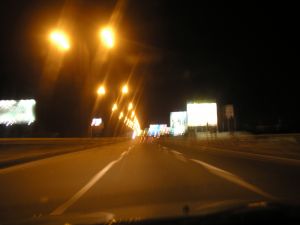 Talk about a rough night. A southern Maryland man was recently arrested for DUI and multiple other traffic offenses. Police came in contact with the man after he was pulled over for unsafe lane changing. Upon contacting the man, the Maryland State Trooper noticed the odor of an alcoholic beverage coming from the driver’s breath. After conducting a DUI investigation, the trooper arrested the man and charged him with DUI, negligent driving, and unsafe lane change. The driver was also given a breathalyzer test at the police station, where his blood alcohol content registered .15, nearly twice the legal limit. A DUI arrest and multiple traffic tickets would certainly have ruined anyone’s evening, but the southern Maryland man’s night was far from over at this point.
Talk about a rough night. A southern Maryland man was recently arrested for DUI and multiple other traffic offenses. Police came in contact with the man after he was pulled over for unsafe lane changing. Upon contacting the man, the Maryland State Trooper noticed the odor of an alcoholic beverage coming from the driver’s breath. After conducting a DUI investigation, the trooper arrested the man and charged him with DUI, negligent driving, and unsafe lane change. The driver was also given a breathalyzer test at the police station, where his blood alcohol content registered .15, nearly twice the legal limit. A DUI arrest and multiple traffic tickets would certainly have ruined anyone’s evening, but the southern Maryland man’s night was far from over at this point.
The man was arrested at about 2 a.m. and taken to the police station in St. Mary’s County, Maryland. Rather than holding the man overnight, police were kind enough to release the man on his own recognizance less than two hours later. No bail bond was necessary, and police did not wait for the man to sober up, but rather allowed him to call for a sober driver to pick him up. It is unclear whether the man actually got a ride from the police station or if he simply walked home, but the man’s car was still in the tow lot at the time he was released from the Maryland police station. Here is where the southern Maryland man’s night went from bad to historically awful. At about 4 a.m. the same Maryland State Trooper was called to perform a DUI investigation in a shopping center parking lot, which was the exact scene where he had just arrested the man for DUI 2 hours before. Unbeknownst to the trooper at the time of the call, the suspect turned out to be the same man that the trooper had just arrested. When the trooper arrived to the shopping center he discovered that the same man he had just arrested was driving a different car, and was slightly less intoxicated, but still well over the legal limit of .08. The southern Maryland man was arrested yet again for DUI, and this time blew a .11 on the breathalyzer machine.
Continue reading →
 Criminal Defense Lawyer Blog
Criminal Defense Lawyer Blog


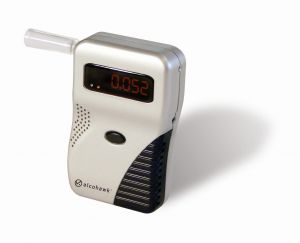 Breath alcohol tests for drivers suspected of DUI could resume in Washington D.C. as early as next month. Washington was forced to suspend its breath alcohol testing program in drunk driving cases after lawyers of convicted DUI defendants filed dozens of lawsuits challenging the validity the test results. Four of these lawsuits ended in settlements against the city, and other civil lawsuits are still pending. The city eventually admitted that its employees provided inaccurate breathalyzer test results to city prosecutors that were used as evidence in DUI cases. Just as in Maryland, Washington breath technicians are required to conduct and document regular maintenance testing for breath alcohol testing machines, but D.C. techs were neglecting to perform these maintenance tests. In some cases breath technicians were even providing false documentation to prosecuting lawyers that was directly used to prove DUI cases.
Breath alcohol tests for drivers suspected of DUI could resume in Washington D.C. as early as next month. Washington was forced to suspend its breath alcohol testing program in drunk driving cases after lawyers of convicted DUI defendants filed dozens of lawsuits challenging the validity the test results. Four of these lawsuits ended in settlements against the city, and other civil lawsuits are still pending. The city eventually admitted that its employees provided inaccurate breathalyzer test results to city prosecutors that were used as evidence in DUI cases. Just as in Maryland, Washington breath technicians are required to conduct and document regular maintenance testing for breath alcohol testing machines, but D.C. techs were neglecting to perform these maintenance tests. In some cases breath technicians were even providing false documentation to prosecuting lawyers that was directly used to prove DUI cases. 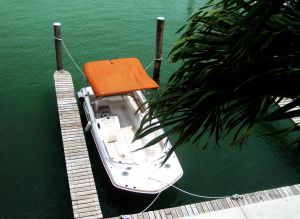 With the summer boating season in full swing, the Maryland natural resource police is charged with the daunting task of keeping the state’s waterways safe. Enforcing Maryland’s DUI laws out on the water is one way that the natural resource police can accomplish this objective. The Maryland state police, and local police departments across the state devote a great deal of effort to maintain or increase the amount of drunk driving arrests each year. This is in part to send a message to the public that drunk driving will not be tolerated out on Maryland’s roads. Each summer, the natural resource police attempts to send the same message that driving a boat while under the influence of alcohol or drugs will not be tolerated on Maryland’s waters. If you decide to venture out on the 17,000 miles of river or the 1,700 square miles of Chesapeake Bay, chances are that you will encounter a Maryland natural resource police officer. In order to prepare for one of these encounters, it is important for boaters to understand how Maryland’s drunk driving laws apply to boaters.
With the summer boating season in full swing, the Maryland natural resource police is charged with the daunting task of keeping the state’s waterways safe. Enforcing Maryland’s DUI laws out on the water is one way that the natural resource police can accomplish this objective. The Maryland state police, and local police departments across the state devote a great deal of effort to maintain or increase the amount of drunk driving arrests each year. This is in part to send a message to the public that drunk driving will not be tolerated out on Maryland’s roads. Each summer, the natural resource police attempts to send the same message that driving a boat while under the influence of alcohol or drugs will not be tolerated on Maryland’s waters. If you decide to venture out on the 17,000 miles of river or the 1,700 square miles of Chesapeake Bay, chances are that you will encounter a Maryland natural resource police officer. In order to prepare for one of these encounters, it is important for boaters to understand how Maryland’s drunk driving laws apply to boaters.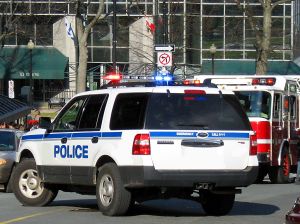 A Berlin, Maryland man has been arrested for his 8th drunk driving offense according to the Maryland State Police. Troopers responded to a traffic accident on Route 50 in Wicomico County at 3 a.m. on Sunday morning and made contact with the allegedly intoxicated driver of a 2002 Ford Explorer. The driver who was later charged with DUI apparently failed to stop at a red light, and rear ended a Suzuki SUV that was stopped and waiting for the light to turn green. The driver of the Suzuki, a 47-year-old woman, apparently suffered minor injuries, as did the 3 passengers traveling in her vehicle. All four of the occupants of the Suzuki refused medical treatment from on scene EMTs and left the scene on their own power. The driver of the Explorer however was not afforded the ability to leave the scene on his own power, as the Maryland troopers detained the man for sobriety exercises.
A Berlin, Maryland man has been arrested for his 8th drunk driving offense according to the Maryland State Police. Troopers responded to a traffic accident on Route 50 in Wicomico County at 3 a.m. on Sunday morning and made contact with the allegedly intoxicated driver of a 2002 Ford Explorer. The driver who was later charged with DUI apparently failed to stop at a red light, and rear ended a Suzuki SUV that was stopped and waiting for the light to turn green. The driver of the Suzuki, a 47-year-old woman, apparently suffered minor injuries, as did the 3 passengers traveling in her vehicle. All four of the occupants of the Suzuki refused medical treatment from on scene EMTs and left the scene on their own power. The driver of the Explorer however was not afforded the ability to leave the scene on his own power, as the Maryland troopers detained the man for sobriety exercises.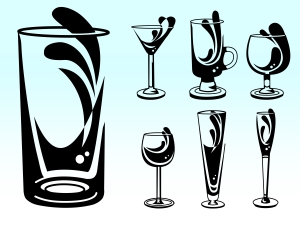 In Maryland, and throughout the county, drunk driving is one of the most publicized crimes in the entire justice system. Not only is drunk driving the most common crime in the country according to the bureau of justice statistics arrest data, but drunk driving also affects the widest range of people. Drink driving defendants come from all ages and backgrounds, with some being multiple convicted criminals and others being first time offenders. Drunk driving also affects a wide range of victims, including children. Each year, powerful and well funded lobby groups pour millions of dollars into establishing comprehensive drunk driving educational programs in our schools, and educational commercials on television and radio. These lobby groups also influence state and federal lawmakers to pursue and maintain strict drunk driving laws, and are many times successful in influencing these lawmakers. Recently some of this attention has Maryland drunk driving laws in the news as well.
In Maryland, and throughout the county, drunk driving is one of the most publicized crimes in the entire justice system. Not only is drunk driving the most common crime in the country according to the bureau of justice statistics arrest data, but drunk driving also affects the widest range of people. Drink driving defendants come from all ages and backgrounds, with some being multiple convicted criminals and others being first time offenders. Drunk driving also affects a wide range of victims, including children. Each year, powerful and well funded lobby groups pour millions of dollars into establishing comprehensive drunk driving educational programs in our schools, and educational commercials on television and radio. These lobby groups also influence state and federal lawmakers to pursue and maintain strict drunk driving laws, and are many times successful in influencing these lawmakers. Recently some of this attention has Maryland drunk driving laws in the news as well. 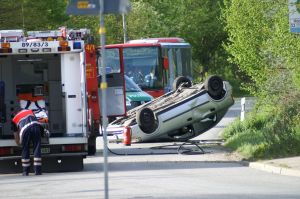 Road rage and aggressive driving incidents in Maryland have become common in the last decade, and law makers have been forced to address the issue, but rarely does a road range incident make news headlines. Unfortunately a recent dangerous road rage incident appeared in the news just last weekend. The Maryland state police has reported that a road rage incident on interstate 295 in Baltimore has resulted in a pair of arrests and multiple serious injuries. Police arrested one Maryland man who was the driver of the main vehicle involved in the road rage incident for DUI, assault, and destruction of property. The passenger, another Maryland man, was also arrested and charged with assault and malicious destruction of property.
Road rage and aggressive driving incidents in Maryland have become common in the last decade, and law makers have been forced to address the issue, but rarely does a road range incident make news headlines. Unfortunately a recent dangerous road rage incident appeared in the news just last weekend. The Maryland state police has reported that a road rage incident on interstate 295 in Baltimore has resulted in a pair of arrests and multiple serious injuries. Police arrested one Maryland man who was the driver of the main vehicle involved in the road rage incident for DUI, assault, and destruction of property. The passenger, another Maryland man, was also arrested and charged with assault and malicious destruction of property.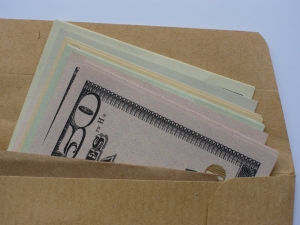 The city of Washington D.C. has agreed to settle four civil lawsuits over false DUI convictions. The civil claims for damages were filed back in 2010 by 4 men whose DUI convictions were tainted by inaccurate breath alcohol testing machines. The city has agreed to pay a total of $20,000 plus attorney’s fees to the 4 plaintiffs. Two of the plaintiffs will receive $5000, and the other two will receive $8,000 and $2,000 respectively. The lawsuit alleged that city officials and police were aware that the breath alcohol testing machines were flawed, but continued to use them in criminal DUI prosecutions. As early as 2008 an independent expert informed the city that their breath alcohol machines were not providing accurate results for a variety of reasons. The machines used in D.C. are similar to the Intoxilyzer machines used in Maryland, and require regular maintenance and calibration. D.C. officials failed to do either, but that does not even tell half the story of the city’s dishonest and fraudulent behavior.
The city of Washington D.C. has agreed to settle four civil lawsuits over false DUI convictions. The civil claims for damages were filed back in 2010 by 4 men whose DUI convictions were tainted by inaccurate breath alcohol testing machines. The city has agreed to pay a total of $20,000 plus attorney’s fees to the 4 plaintiffs. Two of the plaintiffs will receive $5000, and the other two will receive $8,000 and $2,000 respectively. The lawsuit alleged that city officials and police were aware that the breath alcohol testing machines were flawed, but continued to use them in criminal DUI prosecutions. As early as 2008 an independent expert informed the city that their breath alcohol machines were not providing accurate results for a variety of reasons. The machines used in D.C. are similar to the Intoxilyzer machines used in Maryland, and require regular maintenance and calibration. D.C. officials failed to do either, but that does not even tell half the story of the city’s dishonest and fraudulent behavior. 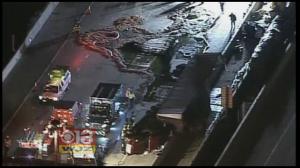 Maryland Police have charged a truck driver with DUI after the driver crashed his tractor trailer on interstate 95 in Baltimore. The apparent drunk driving accident occurred on February 15, on an overpass above interstate 895. Investigators do not know the exact cause of the crash, but the driver likely lost control causing the truck to turn over in the left lane of 95, just north of the Baltimore harbor tunnel. The allegedly intoxicated truck driver was carrying thousands of gallons of a water based chemical additive used in making concrete. Maryland police have yet to release the blood alcohol content of the accused driver, nor did the police divulge whether the driver submitted to a breath or blood alcohol test.
Maryland Police have charged a truck driver with DUI after the driver crashed his tractor trailer on interstate 95 in Baltimore. The apparent drunk driving accident occurred on February 15, on an overpass above interstate 895. Investigators do not know the exact cause of the crash, but the driver likely lost control causing the truck to turn over in the left lane of 95, just north of the Baltimore harbor tunnel. The allegedly intoxicated truck driver was carrying thousands of gallons of a water based chemical additive used in making concrete. Maryland police have yet to release the blood alcohol content of the accused driver, nor did the police divulge whether the driver submitted to a breath or blood alcohol test.